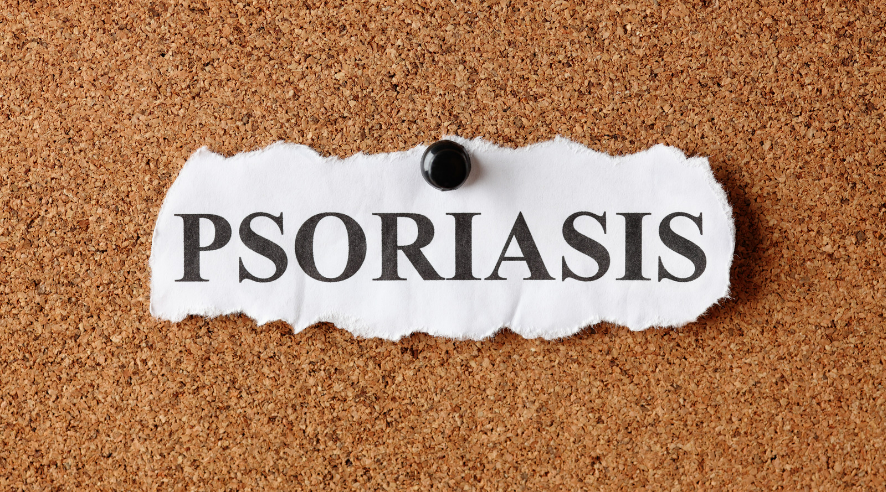Psoriasis: Understanding and Managing the Chronic Skin Condition
- 20 April 2022

Psoriasis is a chronic autoimmune condition that affects the skin, nails, and joints. It is a condition that is often misunderstood, and people who suffer from it face a lot of stigma and discrimination. It is estimated that over 125 million people worldwide have psoriasis, and there is no cure for the disease. This article aims to provide a comprehensive understanding of psoriasis, its causes, symptoms, and treatments, and ways to manage the condition.
What is Psoriasis?
Psoriasis is a chronic inflammatory condition that affects the skin. The immune system mistakenly attacks healthy skin cells, causing an overproduction of skin cells. This results in the formation of red, scaly patches on the skin, which can be itchy and painful. The patches can be found anywhere on the body, but they commonly appear on the elbows, knees, scalp, and lower back. The severity of psoriasis varies from person to person, and it can range from a few spots to covering most of the body.
Causes of Psoriasis
The exact cause of psoriasis is unknown, but research has shown that genetics, the immune system, and environmental factors play a role. Psoriasis is not contagious, and it cannot be spread from person to person. Here are some of the known causes of psoriasis:
- Genetics: Psoriasis is a genetic condition that can be passed down from parents to children. If one parent has psoriasis, the chance of their child developing the condition is 10%. If both parents have psoriasis, the chance increases to 50%.
- Immune system: Psoriasis is an autoimmune condition, which means the body's immune system attacks healthy cells. In psoriasis, the immune system attacks the skin cells, causing inflammation and rapid skin cell growth.
- Environmental factors: Certain environmental factors can trigger psoriasis or make it worse. These include stress, smoking, alcohol consumption, and cold weather.
Symptoms of Psoriasis
The symptoms of psoriasis vary from person to person, and they can range from mild to severe. Here are some of the most common symptoms of psoriasis:
- Red, scaly patches on the skin: The most visible symptom of psoriasis is the formation of red, scaly patches on the skin. The patches can be itchy and painful, and they can appear anywhere on the body.
- Nail changes: Psoriasis can affect the nails, causing them to become thick, discolored, and ridged.
- Joint pain: About 30% of people with psoriasis develop psoriatic arthritis, a condition that causes joint pain and swelling.
- Scalp psoriasis: Psoriasis can affect the scalp, causing red, scaly patches and dandruff.
Treatments for Psoriasis
There is no cure for psoriasis, but there are treatments available that can help manage the symptoms. The type of treatment depends on the severity of the condition and the area of the body affected. Here are some of the most common treatments for psoriasis:
- Topical treatments: Topical treatments are creams, lotions, and ointments that are applied directly to the skin. They can help reduce inflammation and relieve itching and scaling.
- Phototherapy: Phototherapy, also known as light therapy, involves exposing the skin to ultraviolet light. This can help reduce inflammation and slow down the growth of skin cells.
- Systemic medications: Systemic medications are prescription drugs that are taken orally or by injection. They can help reduce inflammation throughout the body and slow down the growth of skin cells.
- Biologic drugs: Biologic drugs are a type of systemic medication that target specific parts of the immune system.
- Topical steroids: Topical steroids are a common treatment for psoriasis. They work by reducing inflammation and slowing down the growth of skin cells. However, long-term use can lead to side effects such as thinning of the skin, stretch marks, and increased risk of infections.
- Vitamin D analogues: Vitamin D analogues are a type of topical treatment that work by slowing down the growth of skin cells. They are often used in combination with topical steroids.
- Retinoids: Retinoids are a type of medication that are used to treat severe cases of psoriasis. They work by slowing down the growth of skin cells and reducing inflammation. However, they can cause side effects such as dry skin and increased sensitivity to sunlight.
- Methotrexate: Methotrexate is a systemic medication that is used to treat severe cases of psoriasis. It works by suppressing the immune system and reducing inflammation. However, it can cause side effects such as nausea, vomiting, and liver damage.
- Cyclosporine: Cyclosporine is a systemic medication that is used to treat severe cases of psoriasis. It works by suppressing the immune system and reducing inflammation. However, it can cause side effects such as high blood pressure, kidney damage, and increased risk of infections.
- Biologic drugs: Biologic drugs are a newer type of systemic medication that target specific parts of the immune system. They can help reduce inflammation and slow down the growth of skin cells. However, they can cause side effects such as increased risk of infections and increased risk of certain types of cancer.
Managing Psoriasis
In addition to medical treatment, there are several lifestyle changes that can help manage psoriasis. These include:
- Moisturizing: Keeping the skin moisturized can help reduce itching and scaling.
- Avoiding triggers: Identifying and avoiding triggers such as stress, alcohol, and cold weather can help prevent flare-ups.
- Eating a healthy diet: Eating a diet rich in fruits, vegetables, and whole grains can help reduce inflammation and improve overall health.
- Exercise: Regular exercise can help reduce stress and improve overall health.
- Avoiding smoking: Smoking can worsen psoriasis and increase the risk of complications such as psoriatic arthritis.
Prevention:
There is no known way to prevent psoriasis, but there are steps that can be taken to reduce the risk of developing the condition or to reduce the severity of symptoms.
- Avoid triggers: Identifying and avoiding triggers such as stress, alcohol, and cold weather can help prevent flare-ups.
- Maintain a healthy weight: Being overweight or obese can increase the risk of developing psoriasis or worsen existing symptoms.
- Eat a healthy diet: Eating a diet rich in fruits, vegetables, and whole grains can help reduce inflammation and improve overall health.
- Avoid smoking: Smoking can worsen psoriasis and increase the risk of complications such as psoriatic arthritis.
- Manage stress: Stress can trigger psoriasis flare-ups, so it is important to manage stress through techniques such as meditation, exercise, or counseling.
Psoriasis is a chronic skin condition that affects millions of people worldwide. While there is no cure for the condition, there are several treatments available that can help manage the symptoms. It is important for people with psoriasis to work closely with their healthcare providers to develop a treatment plan that works best for them. Additionally, lifestyle changes such as avoiding triggers, eating a healthy diet, and regular exercise can help manage psoriasis and improve overall health. With proper management and care, people with psoriasis can lead fulfilling and healthy lives.




